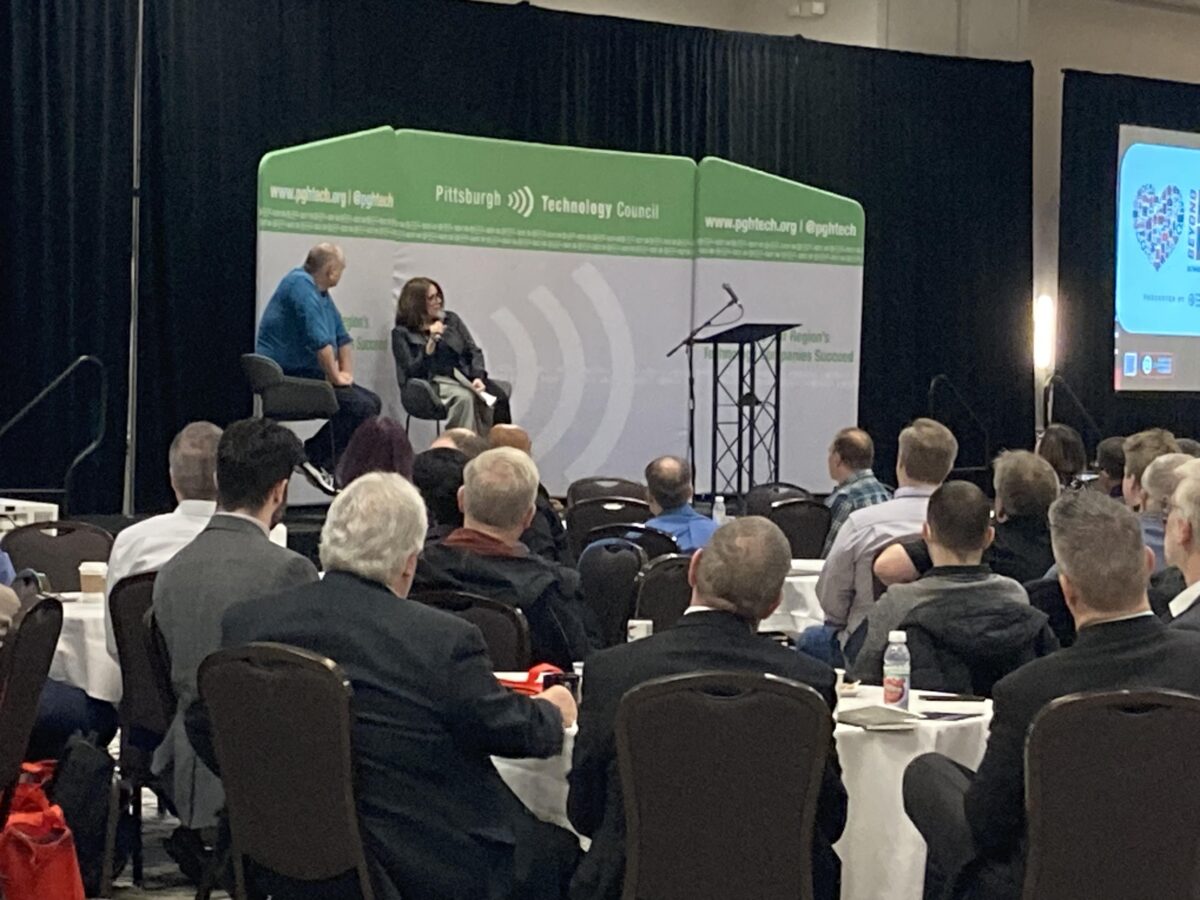From image creation to cancer diagnostics, there may seem to be no limit to what artificial intelligence can do. Still, those who use AI regularly see it as a tool with great potential along with limitations to the problems it can solve.
Lovelace AI is relatively new in the Pittsburgh tech sector, having launched in 2023, but CEO Andrew Moore has been a fixture in the city for years. With years of experience that includes time as dean of Carnegie Mellon University’s School of Computer Science and the general manager and VP for the AI division of Google Cloud — he led the Big Tech company’s first Pittsburgh office — Moore feels artificial intelligence is a tool that can be used to help humanity.
He also cautions that although there’s potential in the technology, like any tool, AI has limits and enthusiasts across the US should be prepared for that.
“I do get frustrated when both coasts really overstate the capabilities or the consequences of what I will call ‘engineering automation,’ which is my word [for] artificial intelligence, where they extrapolate what it’s going to do in a way which confuses the people and the results with people who invest,” Moore said during last week’s Beyond Big Data 2024: AI/Machine Learning Summit. “I think Silicon Valley is much more guilty than people in Pittsburgh.”
Investors remain optimistic about this technology, with AI and machine learning companies accounting for a record 44% of all new unicorns in 2023, according to the most recent Venture Monitor report. But the general public isn’t entirely sold: According to an August 2023 poll, the Pew Research Center found that 52% of Americans feel more concerned than excited about artificial intelligence. The reasons for pause include concerns over safeguarding privacy to worry over if the technology could displace workers.
Yet technology can be used for good, too. Moore sees AI as something that can help address serious problems currently facing the world.
“We’ve kind of got ourselves into a corner with a bunch of really serious problems and we need every tool that we actually can to help us get out of it,” Moore said, “and I see thoughtful use of massive automation as something which is a tool on the plus side of healthcare problems.”
In a city known for its hospitals, Pittsburgh has no shortage of technologists trying to make AI and medicine collide in ways that are beneficial to patients — including at the region’s largest hospital system, UPMC.
In October, Ariel Precision Medicine CEO and cofounder Jessica Gibson pointed to AI’s disease diagnostic and prevention capabilities as a reason to be excited for the future. With artificial intelligence, Gibson said, problems that might not be immediately obvious to the human eye can be identified.
More accessible AI tools like ChatGPT “brought the rest of the public into recognizing the power and the potential of it,” Gibson said during a fall Women in Bio panel. “Imaging is probably one of those cases that’s leading to pattern recognition. What I’m excited to see [is] some of the work that’s been done in oncology translated into actual clinical practice.”
Ultimately, Moore believes a lot can be accomplished with the technology — even prevent unnecessary deaths and improve safety in parts of the world where governments lack resources (though he didn’t give examples of how). Although AI can’t solve every problem in the world, in some cases, it can fill in the gaps.
Atiya Irvin-Mitchell is a 2022-2024 corps member for Report for America, an initiative of The Groundtruth Project that pairs young journalists with local newsrooms. This position is supported by the Heinz Endowments.Before you go...
Please consider supporting Technical.ly to keep our independent journalism strong. Unlike most business-focused media outlets, we don’t have a paywall. Instead, we count on your personal and organizational support.
Join our growing Slack community
Join 5,000 tech professionals and entrepreneurs in our community Slack today!

The man charged in the UnitedHealthcare CEO shooting had a ton of tech connections

The billion-dollar creator industry hits Pittsburgh — and disrupts the innovation economy

From rejection to innovation: How I built a tool to beat AI hiring algorithms at their own game



